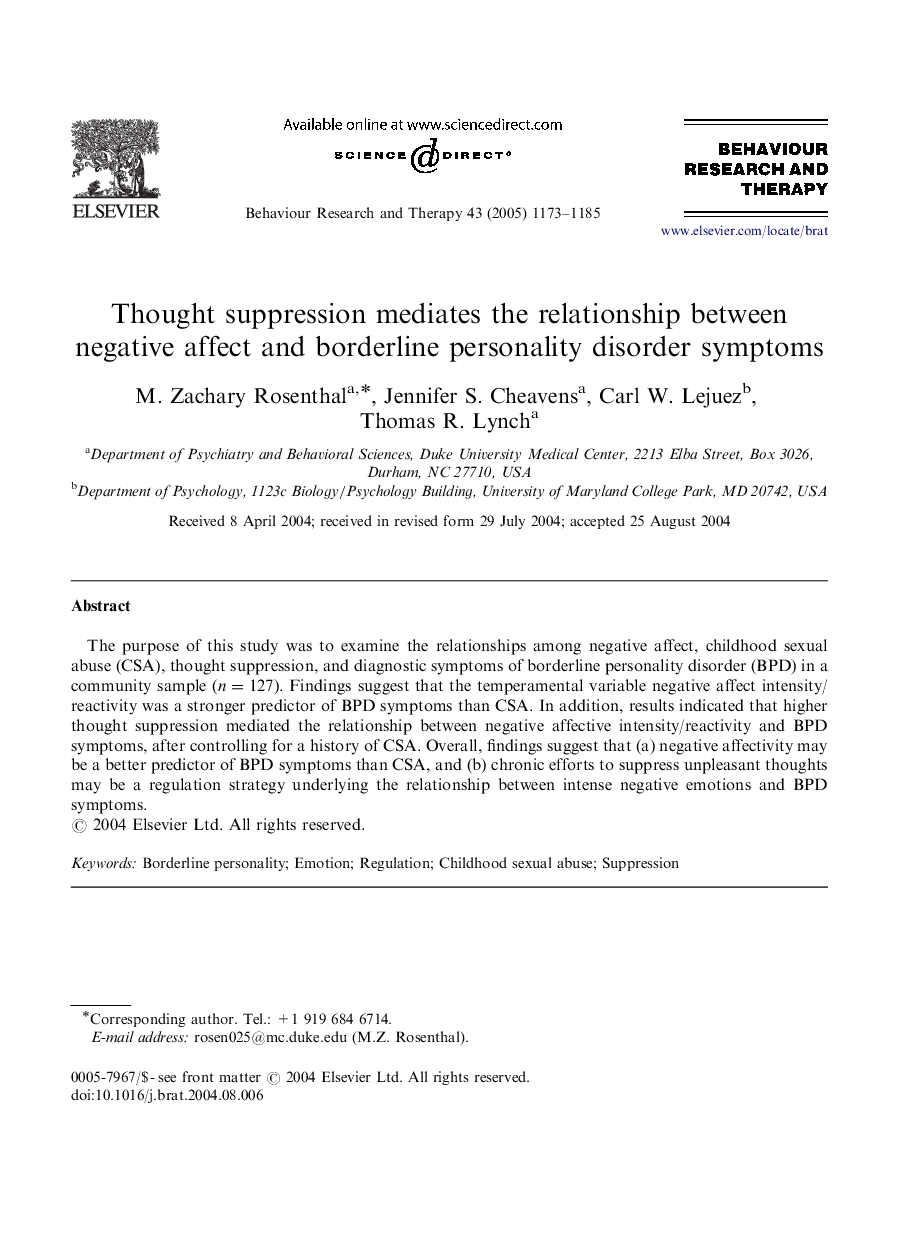| Article ID | Journal | Published Year | Pages | File Type |
|---|---|---|---|---|
| 10445099 | Behaviour Research and Therapy | 2005 | 13 Pages |
Abstract
The purpose of this study was to examine the relationships among negative affect, childhood sexual abuse (CSA), thought suppression, and diagnostic symptoms of borderline personality disorder (BPD) in a community sample (n=127). Findings suggest that the temperamental variable negative affect intensity/reactivity was a stronger predictor of BPD symptoms than CSA. In addition, results indicated that higher thought suppression mediated the relationship between negative affective intensity/reactivity and BPD symptoms, after controlling for a history of CSA. Overall, findings suggest that (a) negative affectivity may be a better predictor of BPD symptoms than CSA, and (b) chronic efforts to suppress unpleasant thoughts may be a regulation strategy underlying the relationship between intense negative emotions and BPD symptoms.
Related Topics
Health Sciences
Medicine and Dentistry
Psychiatry and Mental Health
Authors
M. Zachary Rosenthal, Jennifer S. Cheavens, Carl W. Lejuez, Thomas R. Lynch,
